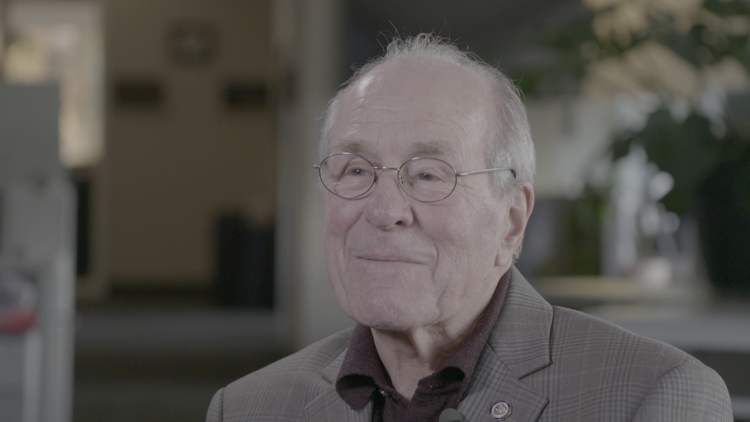Top Stories
Former Governor Kulongoski Launches Urgent Campaign for Open Primaries in Oregon

UPDATE: In a bold move that could transform Oregon’s electoral landscape, former governor Ted Kulongoski has officially launched a campaign to open the state’s primaries to all voters. This initiative comes as Oregon grapples with an increasing number of non-affiliated voters, now making up approximately 37% of the electorate, who currently have no say in partisan races.
Kulongoski, 85, is spearheading Initiatives 55 and 56, which aim to amend the state constitution and replace the existing closed primary system with a “top two” format. This would allow all candidates to compete in a single primary, with the top two advancing to the general election, similar to the system used for nonpartisan positions.
“This system is outdated and unfair,” Kulongoski stated in an interview with KGW. “Non-affiliated voters are funding the elections but are excluded from voting. We need to change this now.” His comments reflect a growing frustration among voters who feel sidelined by the current political structure.
The former governor’s campaign highlights a significant demographic shift in Oregon politics. Non-affiliated voters now outnumber both Democrats and Republicans in 21 of the 36 counties and in five of six congressional districts. Kulongoski argues that by not allowing these voters a voice, Oregon is missing out on crucial civic engagement.
Historically, efforts to reform Oregon’s primary system have faced challenges. A previous attempt in 2014 failed significantly, primarily due to a smaller percentage of non-affiliated voters at that time. The advent of the Motor Voter law has notably increased voter registration among independents and those wishing to opt out of party affiliation, further complicating the traditional party dynamics.
Kulongoski’s initiative marks a surprising shift for a figure who has long championed Democratic causes. He emphasizes that the political landscape has evolved, necessitating a reevaluation of the electoral process. “I am a proud Democrat, but I know when the system needs to change,” he asserted.
The campaign will require gathering a significant number of signatures to place the initiatives on the ballot for November 2024. Kulongoski is collaborating with leaders from both the Republican and Independent parties to amplify support for this change. “Voters are unhappy with their government and their parties. Opening up the primaries would engage more citizens and lead to a more moderate political climate,” Kulongoski explained.
As this campaign unfolds, Oregonians will be closely watching the response from major political parties and whether they will adapt to a changing electorate. Kulongoski’s push for open primaries could reshape the political landscape in Oregon, making it a pivotal moment for voters who seek a more inclusive electoral process.
Stay tuned for updates on this developing story and the implications it may have for the future of Oregon’s elections.
-

 Science4 weeks ago
Science4 weeks agoInventor Achieves Breakthrough with 2 Billion FPS Laser Video
-

 Health1 month ago
Health1 month agoCommunity Unites for 7th Annual Into the Light Walk for Mental Health
-

 Top Stories1 month ago
Top Stories1 month agoCharlie Sheen’s New Romance: ‘Glowing’ with Younger Partner
-

 Entertainment1 month ago
Entertainment1 month agoDua Lipa Aces GCSE Spanish, Sparks Super Bowl Buzz with Fans
-

 Entertainment1 month ago
Entertainment1 month agoMother Fights to Reunite with Children After Kidnapping in New Drama
-

 Business1 month ago
Business1 month agoTyler Technologies Set to Reveal Q3 Earnings on October 22
-

 World1 month ago
World1 month agoR&B Icon D’Angelo Dies at 51, Leaving Lasting Legacy
-

 Health1 month ago
Health1 month agoCurium Group, PeptiDream, and PDRadiopharma Launch Key Cancer Trial
-

 Entertainment1 month ago
Entertainment1 month agoRed Sox’s Bregman to Become Free Agent; Tigers Commit to Skubal
-

 Health1 month ago
Health1 month agoNorth Carolina’s Biotech Boom: Billions in New Investments
-

 Science1 month ago
Science1 month agoNorth Carolina’s Biotech Boom: Billions Invested in Manufacturing
-

 Top Stories1 month ago
Top Stories1 month agoFormer Mozilla CMO Launches AI-Driven Cannabis Cocktail Brand Fast








